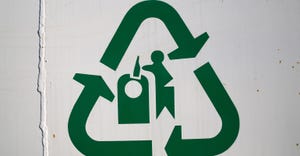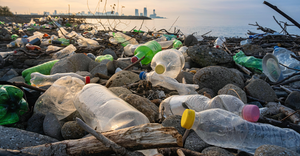Eramet, BASF and SUEZ are working together to create a closed loop process to recycle lithium-ion batteries from electric vehicles.
Eramet, a French multinational mining and metallurgy company, BASF, a chemicals producer, and SUEZ, a global waste management and water treatment company, have joined forces to create the“Recycling Li-ion batteries for electric Vehicle” (ReLieVe) project, an innovative, closed loop process to recycle lithium-ion batteries from electric vehicles and enable the production of new lithium-ion batteries in Europe. The project will receive a substantial funding of €4.7 million by EIT Raw Materials, a consortium initiated and funded by the European Union and the three members.
“The ReLieVe project responds to the European Commission’s appeal to unite European players to position itself in the fast-growing lithium-ion battery market,” said Laurent Joncourt, chairman of Eramet Ideas, the company’s research and development center, in a statement. “Thanks to this funding, the ReLieVe project will be able to accelerate its work and progress toward the construction of a lithium-ion battery recycling sector with an innovative and competitive process on a European scale.”
Beginning January 2020, and over a two-year period, ReLieVe will carry out a series of activities for the large-scale development of this innovative process and the structuring of an integrated industrial sector: from the collection and dismantling of end-of-life batteries going into recycling all the way to the manufacturing of new electrode materials.
The collaboration along the value chain supports an efficient and integrated approach—SUEZ will collect and dismantle end-of-life batteries, Eramet will develop the recycling process and BASF will manufacture the cathode active materials. The ReLieVe founders will receive support from the automotive industry that will be part of the advisory committee as well as academic researchers from Chimie ParisTech and the Norwegian University of Science and Technology, who will help accelerate the search for innovative solutions.
“As a leading cathode active material supplier to battery producers for electrified vehicles, BASF is confident that recycling will play an increasingly important role in the roll-out of electromobility,” said Daniel Schönfelder, vice president of business management for BASF Battery Materials Europe, in a statement. “We are committed to foster an innovative, sustainable and competitive battery value chain in Europe together with partners and will contribute our expertise in cathode material production to the project.”
The development of new European lithium-ion battery recycling capabilities will make it possible to respond to the strong growth of this market in the coming years and to the issue of securing Europe’s supply of raw materials like nickel, cobalt, manganese and lithium elements required for its energy transition. Moreover, the virtuous recycling process meets the essential challenges of sustainable performance through its savings on raw materials.
“We are proud to bring our expertise and contribute to the recovery of end-of-life battery components through this partnership,” said Jean-Marc Boursier, SUEZ chief operational officer and senior executive vice president group in charge of Northern Europe and IWS Europe, in a statement. “Around 50,000 tons of batteries are expected to be recycled by 2027 in Europe, and it could be multiplied almost tenfold by 2035. With the ReLieVe project, SUEZ is supporting the development of alternatives approaches that blend circular solutions with sustainable urban mobility.”
About the Author(s)
You May Also Like


